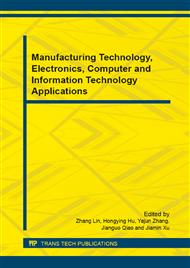p.3498
p.3502
p.3508
p.3512
p.3516
p.3521
p.3525
p.3530
p.3536
An Optimal Application Partition Algorithm for Energy Efficient Computation Offloading
Abstract:
In order to alleviate the energy constraint in smartphones, computation offloading is regarded as an effective solution. In computation offloading, how to partition a given application is one of the key issues. On obtaining the best partition, due to the time complexity of partition algorithm, most researchers give up looking for a global optimal solution but to find local optimal. In this paper, a global optimal application partition algorithm is presented, the main strategy is scaling down the problem through merging the correlated nodes firstly, then using 0-1ILP to obtain the partition in order to make the mobile energy consumption achieve global optimal minimum, thus it has less time complexity than 0-1 ILP. Experimental results show that the proposed algorithm made the same global optimal partition results as 0-1 ILP, while it consumed less time and energy than 0-1 ILP.
Info:
Periodical:
Pages:
3516-3520
Citation:
Online since:
November 2014
Authors:
Price:
Сopyright:
© 2014 Trans Tech Publications Ltd. All Rights Reserved
Share:
Citation:


